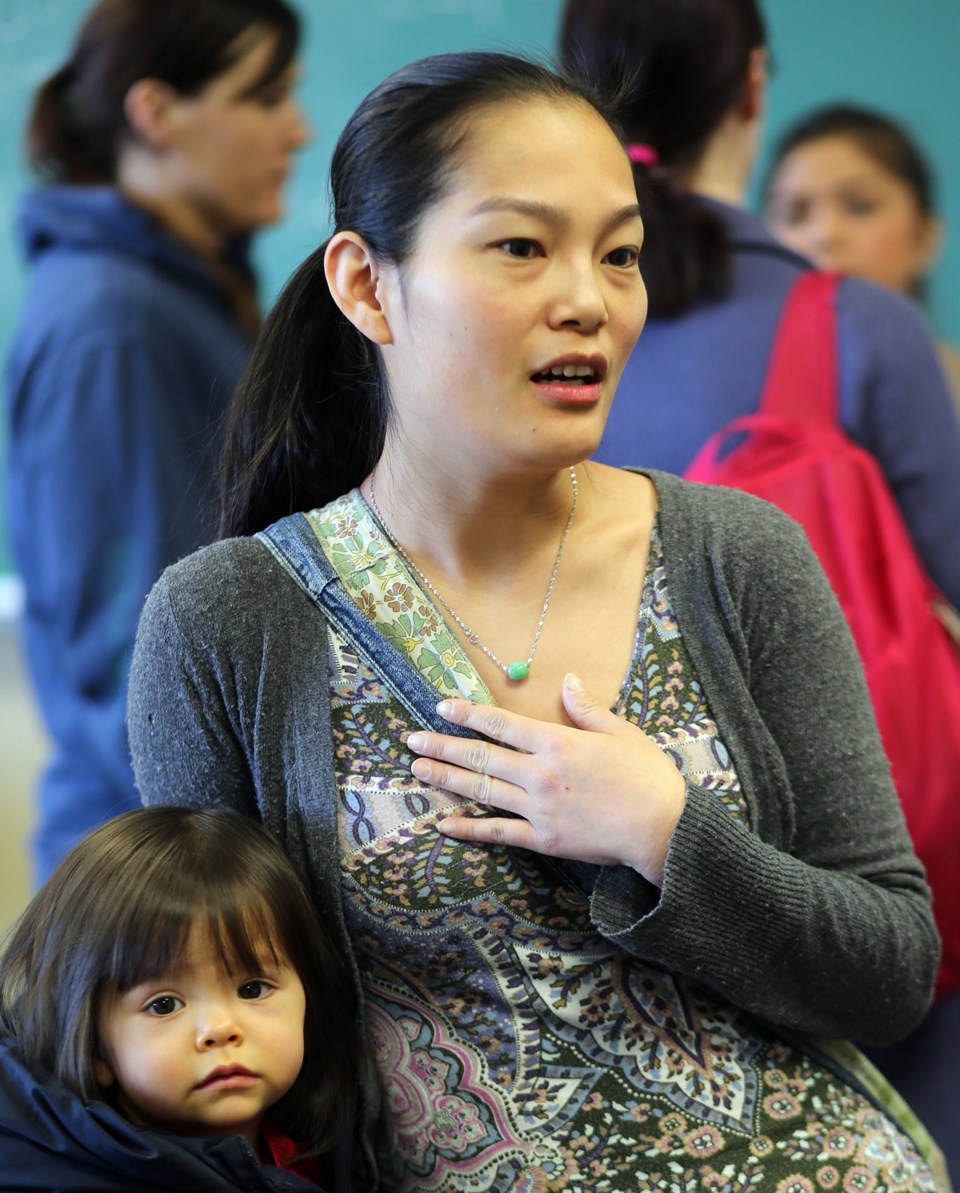The stakes will be higher than usual when Camosun College student Amina Majnon writes her final exams this April.
The former engineer, who moved to Victoria from Libya with her husband and three children three years ago, is counting on her English as a second language certificate to re-enter the workforce.
But since the program is being cancelled due to funding cuts, she’s worried that if she fails and can’t retake her final class, her family might be forced to turn to social assistance instead.
“We will depend on welfare. I don’t like that,” said an emotional Majnon. “[But] if I finish this program, it means I can upgrade my degree here, I can start from the beginning.”
Majnon is one of about 300 domestic students, including new immigrants and refugees, affected by the cuts. Cuts don’t affect international students, who pay tuition for language classes.
The province said in December that colleges and universities would lose $17 million in federal funding for ESL programs. The Ministry of Citizenship and Immigration Canada, which distributes the funding, will provide it directly to language-education providers instead. Those contracts have not yet been announced, but Camosun — which vice-president of communication Joan Yates said ran ESL programming on about $1.3 million — was not selected.
The financial loss adds to an existing $2.5-million budget shortfall this year. Layoffs are also expected among the 28 staff and faculty.
Majnon gathered with about 35 other students in a classroom at the college on Thursday to hear their options.
Camosun will accept no new students, but will do what it can to help current students finish their studies, said Ian Humphries, dean of the School of Access.
It’s unclear exactly what that means, until the school receives more information from the province, he said. One option is continuing programming, but charging tuition.
Majnon says that won’t work for her.
“I can’t. We don’t have a job. How can me or my husband pay admission?” she said. “That means that will close the door on us.”
It’s still unknown how much time students will have to complete their certificates.
Amal Mastour, a former accountant from Morocco who has studied at Camosun part time for two years, is also worried. She is expecting a baby in May — if it comes early, she might not complete the course.
She said the program has not only given her language skills, but also independence and community.
“My life has changed,” she said. “Before, I haven’t had any chance to talk to other people or to have friends.”
Bugu Tian, who came from Shanghai, said she was able to find work in Canada thanks to her new language skills. She works at Starbucks to help support her 18-month-old daughter, Anna-Sophia.
“I know how important it is to get not only a job, but maybe a career here,” she said. “I have a lot of friends here; they come from China as well, but their English is not as good as me. They’ve had a big problem not only getting a job, but making friends. They feel lonely.”
Members of the college’s student society are organizing to protest the cuts with a letter-writing campaign and possibly a rally.
“It’s been a really shocking cut for all of us at the institution,” said executive member Simka Marshall. “This really shows that our provincial government isn’t prioritizing post-secondary education, especially with training that’s so important to our vulnerable new Canadians trying to enter the workforce.”
Jean McRae, executive director of the Inter-Cultural Association, said her organization is negotiating for the funding. The ICA already offers language training, but has worked closely with Camosun to find the most appropriate program for interested students — some might start at ICA before moving to Camosun, which offered classes for transitioning into an academic or professional environment.
“I’m very concerned that students could lose that ability to upgrade to the point of taking academic courses,” McRae said. “That’s the piece that’s missing.”
Since 2001, Camosun’s operating budget has increased by 40 per cent to $52 million this year, based on an enrolment growth of 10 per cent, the ministry said.
“The Ministry of Advanced Education is developing a transition plan in partnership with our institutions to mitigate the impact on students, staff and faculty,” minister Amrik Virk said in a statement.
The ministry provided support to Camosun and other institutions bidding directly on delivery of ESL.
“Camosun College’s decision to stop delivering ESL programs is at their discretion,” Virk said.



